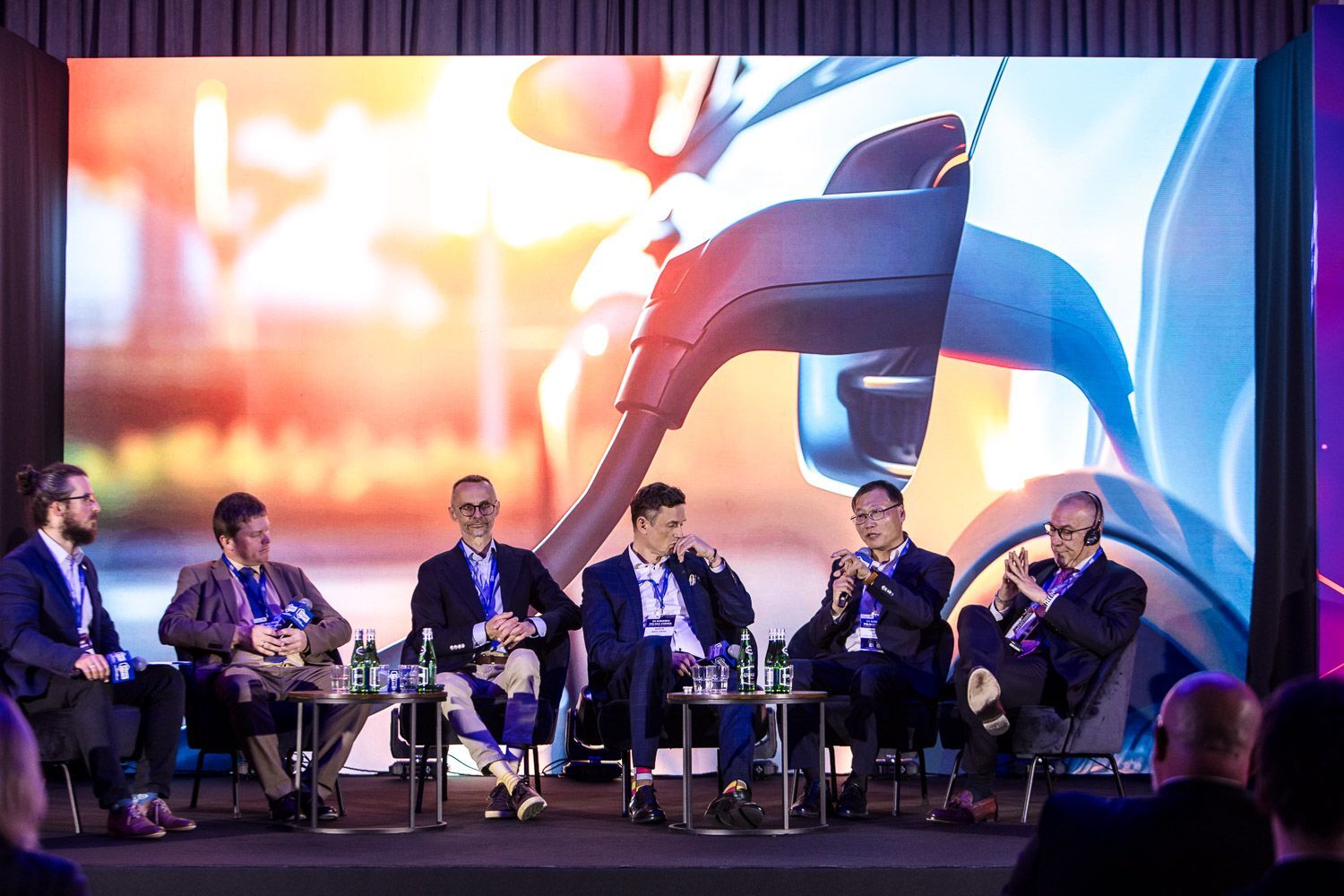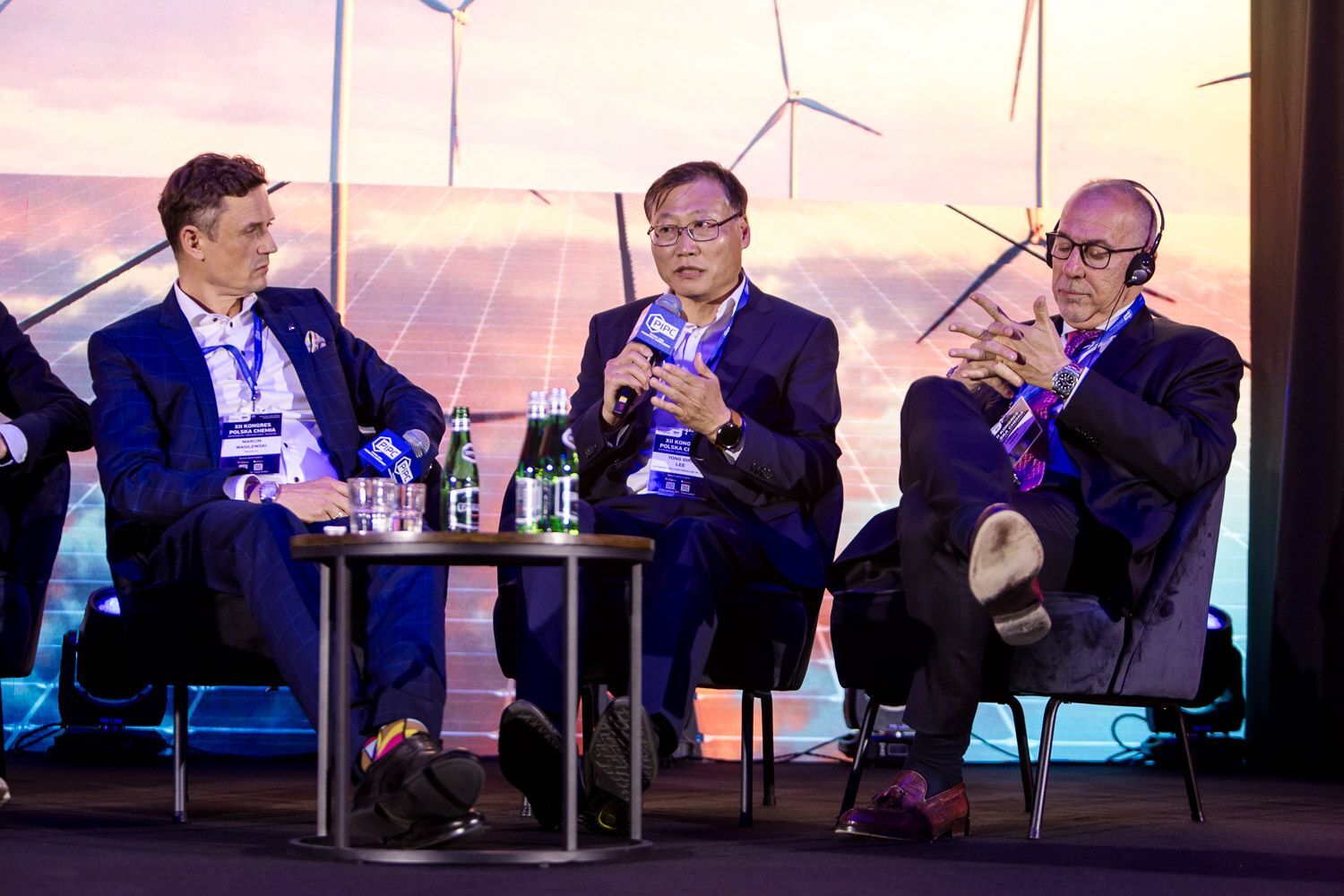- LG Energy Solution Wroclaw joins industry leaders to discuss affordable, sustainable energy solutions at Poland’s largest chemistry congress.
- The company underscores strong partnerships and clear regulations for boosting energy competitiveness in Europe.
From May 29 to 30, 2025, LG Energy Solution Wroclaw participated in the 12th Polish Chemistry Congress – Europe’s largest event of its kind – at Krakow’s Fabryczna 13 Conference Centre. The congress united industry leaders, government officials, and experts to tackle the most pressing challenges in economic security, regulatory reform, energy transition and competitiveness.

(Source: Polish Chemistry Congress LinkedIn)
Over two days, hundreds of professionals joined in person or virtually to discuss the role of nuclear power and renewable energy in the future of hydrogen, carbon capture and electric mobility. Organized by the Polish Chamber of Chemical Industry (PIPC), this event coincided with Poland’s presidency of the Council of the EU and served as a powerful call to action under the motto: “Security, Europe!”
LG Energy Solution Wroclaw shared its perspective during the panel, “Technology for affordable energy as a pillar of economic security,” adding its voice to important conversations shaping the future of energy and industry in Europe. The company emphasized the importance of diversifying raw material sources for battery production to reduce costs and strengthen competitiveness.
The consensus among industry and policy leaders was that innovation, strong partnerships, and clear regulatory frameworks are essential to accelerating technology adoption and unlocking affordable, sustainable energy.
Speakers shared insights on the role of affordable, stable energy in supporting economic resilience amid rising investment pressures, regulatory challenges, and decarbonization goals. They noted that while nuclear energy offers long-term price stability, it cannot instantly resolve industrial cost issues.
Hydrogen and blue ammonia were identified as promising decarbonization options, though they remain less competitive than natural gas at current energy prices. In the short term, hydrogen’s role may focus on public transportation, while electrification dominates personal mobility. Carbon capture and storage (CCS)[1] was also identified as strategically vital, despite lacking regulatory and infrastructure support.
The panel concluded that the diversification and cost-optimization of raw materials is of paramount importance, with long-term success hinging on constant R&D in novel material technologies. Achieving affordable and sustainable energy will also require advanced energy storage systems, ongoing research, local technological partnerships, accelerated renewable energy deployment, and stable, clear regulations.

(Source: Polish Chemistry Congress LinkedIn)
“Since our initial investment in 2017, Poland’s energy prices have soared to among the highest in Europe, impacting our competitiveness compared to the company’s other plants worldwide,” said Yong Girl Lee, Director of External Relations at LG Energy Solution Wroclaw. “We are working closely with the Polish government to address these surging costs, as building a leading infrastructure and energy ecosystem with affordable prices is pivotal to sustaining industrial investment and driving economic growth in Poland.”
To achieve energy affordability and competitiveness, Poland’s energy landscape must undergo an almost complete transformation – shifting from a coal-dominated mix to a low-emission and sustainable system. This major transition calls for expanding renewable energy sources such as wind, solar, and biomass, improving energy efficiency, and modernizing the power grid. Aligned with these goals, the EU’s Green Deal aims to halve greenhouse gas emissions by 2030 and achieve climate neutrality by 2050.
For Poland, this means phasing out coal, developing offshore wind farms, and promoting electromobility. While renewables now account for a growing share of electricity production, coal remains a primary source of energy, making the pace of change both a technological and social challenge. The government’s strategies emphasize gradual decarbonization alongside ensuring energy security, managing job transformations in mining regions, and securing EU funding to support sustainable growth.
Amid these transformative efforts, LG Energy Solution Wroclaw is boosting the region’s socioeconomic and political landscape by engaging in important societal discussions. Committed to driving innovation and supporting the sustainable transition, the company continues to play a central role in shaping a resilient, sustainable future for the European automotive industry.
[1] Carbon Capture and Storage (CCS) is a three-step process that protects the atmosphere by capturing carbon dioxide (CO2) emissions from sources or air, transporting it, and storing it underground.
+ To stay up to date with the latest news from LG Energy Solution, click “Subscribe.”